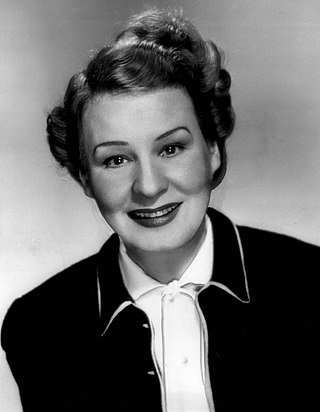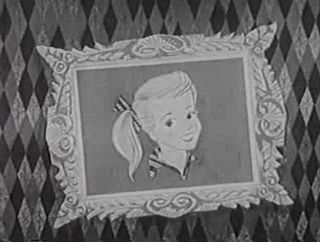
Shirley Booth was an American actress. One of 24 performers to achieve the Triple Crown of Acting, Booth was the recipient of an Academy Award, two Primetime Emmy Awards and three Tony Awards.

Duffy's Tavern is an American radio situation comedy that ran for a decade on several networks, concluding with the December 28, 1951, broadcast.

The Adventures of Wild Bill Hickok is an American Western television series that ran for eight seasons from April 15, 1951, through September 24, 1958. The Screen Gems series began in syndication, but ran on CBS from June 5, 1955, through 1958, and, at the same time, on ABC from 1957 through 1958. The Kellogg's cereal company was the show's national sponsor. The series was also exported to Australia during the late 1950s.

Ed Gardner was an American comic actor, writer and director, best remembered as the creator and star of the radio's popular Duffy's Tavern comedy series.
China Smith is a 30-minute American syndicated television adventure series starring Dan Duryea. It is set in Singapore. It was released in the fall of 1952. The program's alternate title was The Affairs of China Smith, and the last 26 episodes were syndicated with the title The New Adventures of China Smith.
Martin Kane, Private Eye is an American crime drama radio and television series sponsored by United States Tobacco Company. It aired via radio from 1949 to 1952 and was simultaneously a television series on NBC from 1949 to 1954. It was the "earliest of successful cops-and-robbers series" on television.
Joan Gerber was an American voice actress who provided voices for a variety of cartoons.
The Range Rider is an American Western television series that was first broadcast in syndication from 1951 to 1952. A single lost episode surfaced and was broadcast in 1959. In 1954, the BBC purchased rights to show the program in the UK . It was also shown in Melbourne, Australia, during the 1950s. It was broadcast in Canada and in Rome.
Foreign Intrigue is a syndicated espionage drama television series produced in Europe by Sheldon Reynolds. The 30-minute series ran for four seasons from 1951 to 1955, producing 156 episodes. It was the first filmed television series from the United States to be broadcast on Canadian television.

Meet Corliss Archer is an American television sitcom that was broadcast on CBS between July 13 and August 10, 1951, and in syndication via the Ziv Company from April to December 1954. It was an adaptation of the radio series of the same name, which was based on a series of short stories by F. Hugh Herbert. It was also broadcast in Canada.
I'm the Law is the title of a 30-minute syndicated American television police drama series which aired in 1953 starring George Raft as Lt. George Kirby, a New York Police Department detective involved in solving a variety of crimes in New York City.
Boots and Saddles is an American Western television series that aired in syndication from 1957 to 1959.
Night Editor is a 15-minute anthology television series aired on the DuMont Television Network from March 14 to September 8, 1954. Hal Burdick wrote and narrated the episodes and sometimes acted out the stories. Ward Byron was the producer, and Dick Sandwick was the director.
Broadway Television Theatre is a one-hour syndicated television anthology series produced by WOR-TV in New York City. The series premiered April 14, 1952 and ran through January 25, 1954.
The Whistler is a 30-minute syndicated American television anthology mystery series, based on the radio series of the same name.
Inner Sanctum is an American television anthology series based upon Inner Sanctum Mystery, the radio series of the same name. It was created and produced by Himan Brown. Its unseen host and narrator was Paul McGrath. Thirty-nine episodes were syndicated in 1954.
Mayor of the Town is a syndicated American sitcom and drama that aired in 1954.

Charles Cantor was an American radio and TV actor. Cantor was known for his frequent appearances on radio, sometimes, totaling 40 shows a week, during the 1930s, 1940s and 1950s. Cantor also appeared in nearly 30 television shows between 1951 and 1965.
Janet Dean, Registered Nurse is an American medical drama television series. It was released in February 1954, and it continued to be broadcast in reruns in the early 1960s. It was the first TV series in which the lead was a nurse. By October 1954, the show's title had been changed to The Ella Raines Show "following the lead of other packages that switched to the stars' names to help pull an audience for the package."
Sheena, Queen of the Jungle is a syndicated American television adventure series that was broadcast in 1956-1957. The title character was "the female counterpart of Tarzan."






